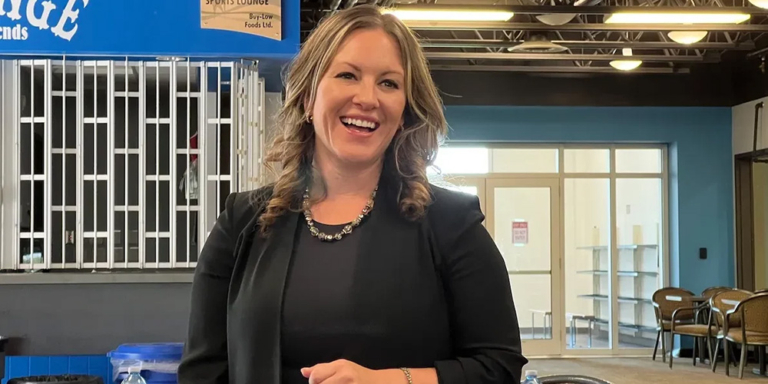
Thanksgiving comes around every year and never fails to provide great grub, gratitude… and sometimes… gripes!
As much as the holiday brings us together, it can also bring out tension.
Whether it’s something as (seemingly) simple as the best way to cook a Turkey or a topic that’s a little (or a lot) more polarizing – family and the holidays make the ground fertile for arguments!
Dinner can be an opportunity to talk through topics you wouldn’t usually get the chance to discuss, but other times, you just wanna eat your scalloped potatoes in peace… or maybe you like them mashed.
No matter the energy in your social battery, we’ve got some helpful techniques to help get you through the madness and maintain a grateful spirit as much as possible.
If you’ve got the energy/maturity.
Social divides have become deeper than ever in the last few years. COVID, climate disasters and increasing polarization have all caused people and families stress. It’s worth remembering that many of us are stressed, and when people are overloaded, they often lash out.
Peter Coleman, the director of the Morton Deutsch International Center for Cooperation and Conflict at Columbia University, has been studying what happens when people clash over politics.
“There’s been a big increase in contempt for the other side, the idea that they are ignorant, selfish and out to harm,” he told the New York Times.
Using an intimate and welcoming environment like a dinner table as a starting point to bridge gaps is actually the best way to create more understanding. Being face-to-face makes people more civil and empathetic than when they are posting to the faceless entity that is social media.
“If people don’t have human contact, the scope for misunderstanding, vilification and violence is greater. Research says that when you bring people together, it tends to help most of the time,” Dr. Coleman said.
Tip 1: Really Listen.


When that one uncle gets going on a topic hotter than the roast, and you meet fire with fire – you’re guaranteed nothing but a blow-up.
“Thanksgiving is not the place where you are going to change anyone’s opinion,” said Coleman
On the other hand, while you might not change anyone’s opinions, you can likely give each other some perspectives to chew on.
Psychologists say if you can be open and curious about where the other person is coming from, suspend judgment and listen respectfully – you’ll likely be given the same treatment.
“Make sure that the marginalized voices are heard. I’m also talking about ideologically marginalized voices, such as conservative voices in a liberal environment,” Aftab Erfan, the new executive director of Simon Fraser University’s Morris J. Wosk Centre for Dialogue, told the Tyee.
“Give that voice a chance to be heard, not necessarily to be proven true, but to get a hearing. If it doesn’t, it will become more and more extreme over time.”
You don’t have to agree with anyone’s opinions, but giving everyone at the table a real chance to speak will immediately deescalate things.
Who knows, if you really listen, you might hear something you hadn’t thought of. Go figure?
The key is to listen and not develop counterarguments while pretending to listen.
Tip 2: Go Micro, Not Macro


Another key to improving the chances of both sides hearing each other is to make sure the conversation is not abstract but personal.
For starters, trying to defend a political party, a movement, or an entire class of people is a lot more than you can reasonably cover over dinner anyway.
“Speak for yourself. We ask folks to tell stories about their own life experience and how they have come to the views that they hold,” said Parisa Parsa, the executive director of Essential Partners
By simply explaining what instances have made you feel the way you do, you open doors into your mind, making it easier for others to understand.
The more you can personalize your points, the easier others will relate to your views.
After all, it is hard to argue with how a person ‘feels.’ We all feel things, and having someone hear our point-of-view makes it easier to open up to listen to others’ viewpoints.
If you don’t have the energy/maturity.
Does Great Grandma Jean’s opinions on people’s weight, marriage status, new haircut, or tastes in music have you brainstorming how to stuff her instead of the turkey?
Well, don’t worry. First, take a deep breath, then try our top tips for (respectfully) shutting someone’s pie-hole.
Tip 1: Use Open-Ended Phrases
An open-ended phrase can be a one-way ticket out of an awkward topic. Some lines to try when you are wondering how deep a butter knife can be plunged into Uncle Ed:
- “Maybe you’re right.” The key word here is “maybe.”
- “Sure, why not?” This isn’t actually agreement, but it kind of sounds like it.
- “Might as well try it. ”On the other hand, you might not.
Tip 2: Act Dumb
This is a proven strategy for the most relentless of relatives. Here is a sample conversation:


- “So, when are you going to get back out there?”
- “Huh, I don’t know.”
- “You don’t know?”
- “Not at all.”
- “Why not?”
- “Haven’t thought about it.”
- “Well, shouldn’t you think about it?”
- “Huh, maybe.”
You’ll look like an airhead, but it works for every topic, and they’ll give up eventually.
Tip 3: Hide!
You can never go wrong with “I’ll be back, have to pee!” Chances are the topic will have changed by the time you’re back, and you can decompress in the sweet luxury of a silent guest bedroom or enjoy nosing through bathroom cabinets. Beautiful.
From Dine-In to Takeaway
In the midst of Thanksgiving’s challenges and potential disagreements, remember that the essence of this holiday lies in gratitude and togetherness.
Be thankful that you have a family to spend the holidays with, and come with a positive attitude. If you come in looking for a fight, you’ll likely find one!
While it can be challenging to navigate sensitive topics, especially in today’s polarized climate, embracing these few simple strategies can help maintain a sense of understanding and unity at the dinner table.
Whether you take the high moral road or stoop below the dining room table to hide, you can navigate challenging conversations with a level of grace (or disconnect) and ensure a more peaceful and harmonious holiday celebration.
In the best-case scenario (you know, the maturity route), you’ll leave with more than leftovers but also with a better understanding of other perspectives on the world. Heck, you might even be better for the experience! Now that’s something to be thankful for!






